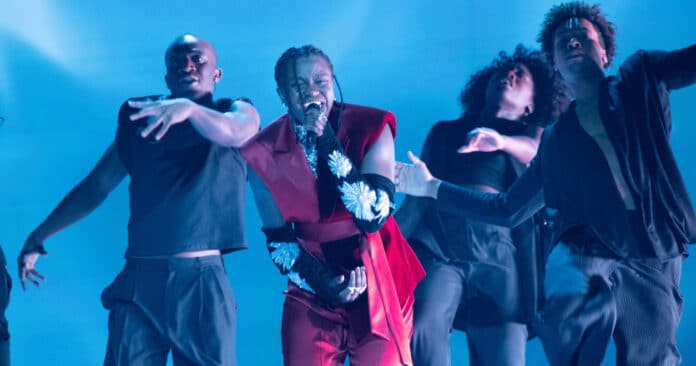The Congolese-Swedish singer Tousin “Tusse” Chiza is one of the contestants with a refugee background at this year’s Eurovision Song Contest in Rotterdam. The 19-year old born in Democratic Republic of Congo has overcome many challenges and shares his experiences with the world. With his song Voices, on Saturday he is hoping to lead Sweden to yet another Eurovision victory.

In 2006, Tousin ”Tusse” Chiza fled from the conflict raging the Democratic Republic of Congo, separated from his parents along the way. Together with his aunt he went on to spend three years in a refugee camp in Uganda. At age 8, Tusse was granted asylum in Sweden.
His music and singing have been his tool for overcoming hardships in life. ”My voice is a part of me,” he said in the documentary Tusse: Without my voice. ”It was my escape from the things that were difficult. It was my safe space.”
An experienced music competitor

Despite ultimately being voted out, the next year he went on to try his luck in another music talent show – Idol. He impressed both the jury and the Swedish public, and won the 2019 season of Idol.
Both his immense musical talent and his vibrant personality made an impression with the viewers and listeners, and early on he was a favored participant in Sweden’s contest for Eurovision in 2021. He won by a landslide.

”The hate comes from people who are not feeling well. All I want is for them to realize that they deserve to feel good about themselves,” he said in an interview with Dagens Nyheter.
A million voices

The song Voices is meant as a plea to all people to make take car of one another and not give in to hate. All voices are valuable and deserve to be heard.
”It is a way to prove them wrong,” Tusse told Dagens Nyheter about the message of his song. ”Those who said I could not be myself or dress as I wanted. I don’t care anymore, I can be myself now. We are a million voices.”
Tusse is one of three participants with a refugee background. Artists Manizha representing Russia and Ahmad Joudeh, a Dutch Ballet Dancer performing the May 20th semi final, are also sharing a refugee background.
UNHCR, the UN Refugee Agency, is delighted that three performers with refugee backgrounds will be participating in this year’s Eurovision Song Contest, and wish them the best of luck.





